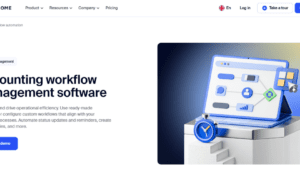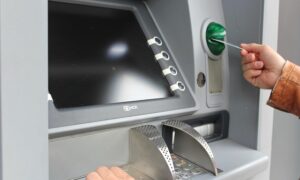Franchise businesses have gained significant popularity in the UK. It helps business owners to launch their initiatives with the backing of an established business plan. franchise operators should employ efficient accounting procedures while expanding their operations to achieve financial success. This article will examine several crucial accounting procedures that might improve the performance of franchise businesses in the uk.
Timely recordkeeping and bookkeeping
Effective Franchise Accounting is built on accurate and current bookkeeping. It is crucial to keep meticulous records of all financial transactions, including data about sales, costs, salaries, and taxes. The accuracy of financial reports, which guide corporate choices, is ensured by timely bookkeeping.
Chart of Accounts Standardisation
Standardizing the chart of accounts across franchise units is crucial for consistency and ease of financial analysis. A chart of accounts is a categorized list of all accounts used in the franchise’s financial transactions. By adopting a standardised chart of accounts, franchise owners can compare financial data across different units, identify trends, and analyse performance effectively. This standardisation simplifies the consolidation of financial information for reporting purposes.
Regular Financial Reporting
Regular financial reporting provides franchise owners with a clear understanding of their business’s financial health and performance. Accounting Franchises reports such as profit and loss, balance sheets, and cash flow statements should be generated and reviewed regularly. These reports help identify areas of strength and weakness, track profitability, and make data-driven decisions to optimise operations. Franchise owners should set up a reporting routine and make sure that reports are precise, thorough, and simple to access.
Budgeting and Forecasting
Budgeting and forecasting play a crucial role in managing finances and planning for future growth. Franchise owners should develop a comprehensive budget that outlines expected revenue, expenses, and investments. This budget serves as a benchmark for performance evaluation and enables proactive financial management. Additionally, forecasting helps anticipate future financial outcomes based on current and historical data. By incorporating budgeting and forecasting into their accounting practices, franchise owners can align their financial goals with their growth strategies.
Tax Compliance
Adhering to tax requirements is crucial for any business, including franchise operations. Franchise owners should guarantee that their tax returns are filed accurately and on time by staying current on the latest tax rules. This includes fulfilling obligations such as VAT returns, payroll, and income taxes. Partnering with a qualified accountant specialising in franchise taxation can help navigate the complexities of tax compliance and ensure that franchise businesses remain in good standing with the authorities.
Inventory Management
For franchises dealing with physical products, inventory management is crucial to control costs and optimise cash flow. Implementing an inventory management system helps track stock levels, monitor product turnover, and identify potential issues such as stockouts or excess inventory. By keeping inventory levels balanced and aligned with demand, franchise owners can minimise holding costs and maximise profitability.
Internal Controls and Fraud Prevention
Establishing internal controls is essential for safeguarding franchise assets and preventing fraudulent activities. It includes segregating financial duties, implementing expenditure approval processes, and regularly reviewing financial transactions. By creating a solid system of internal controls, franchise owners can minimise the risk of financial fraud and ensure the accuracy and integrity of their accounting records.
In conclusion, effective accounting practices are crucial for the success of franchise businesses in the UK. Timely bookkeeping, standardised chart of accounts, regular financial reporting, budgeting and forecasting, tax compliance, inventory management, and internal controls are all integral to effective franchise accounting. By implementing these practices, franchise owners can gain greater control over their finances and make informed business.



































